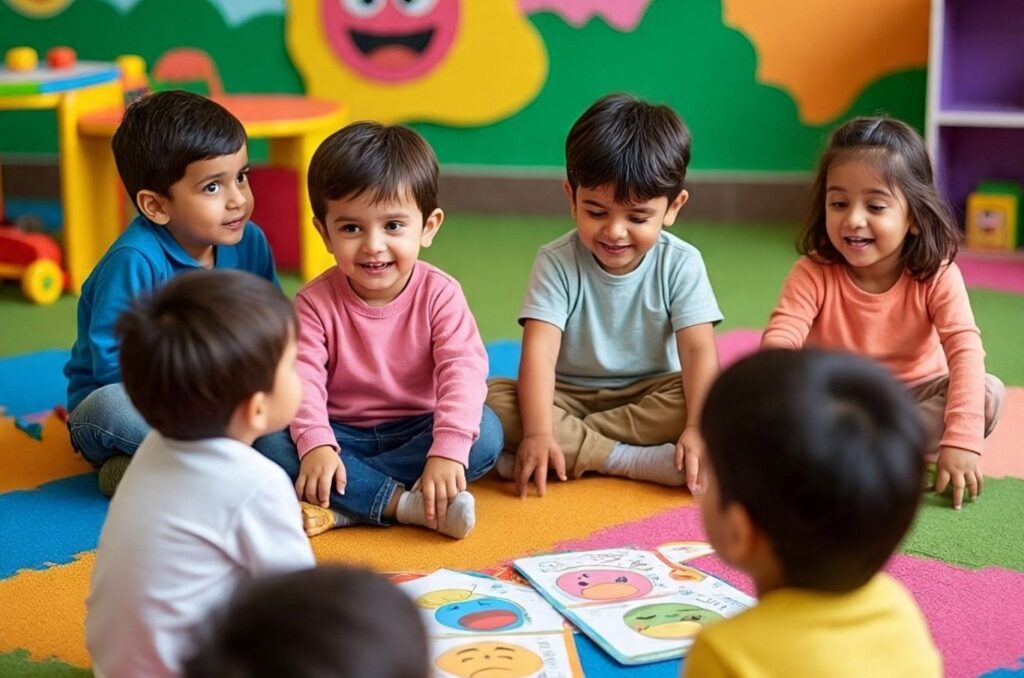Beyond ABCs: How Social-Emotional Learning Can Ease Preschool Loneliness In Urban Homes

Beyond ABCs: How Social-Emotional Learning Can Ease Preschool Loneliness In Urban Homes
Pune, July 28, 2025
In the bustle of modern urban life, where skyscrapers rise and schedules tighten, a quiet crisis is unfolding behind closed doors — one that rarely makes headlines but affects the youngest and most vulnerable among us. Preschool-aged children, nestled within the compact units of nuclear families, are facing an invisible but profound challenge: social-emotional loneliness.
Despite being physically surrounded by family and caregivers, many young children in cities feel emotionally adrift. “It’s a loneliness that doesn’t come from being alone,” explains Shweta Saxena, a child psychologist and Social-Emotional Learning (SEL) specialist from Pune. “It’s the loneliness of not feeling truly connected — of not being understood, of not having the tools to express emotions or build friendships.”
In traditional joint families, children often developed social skills naturally through spontaneous interactions with cousins, grandparents, and neighbors. But in today’s urban households, with limited family networks and fewer opportunities for free play, those critical experiences are becoming rare. And without structured support, children can struggle to develop essential skills like empathy, cooperation, and emotional regulation.
That’s where Social-Emotional Learning steps in — not as an add-on, but as a lifeline.
“SEL is not just classroom theory,” Saxena emphasizes. “It’s about equipping children with practical tools to understand themselves, relate to others, and navigate their emotional world.” The five pillars of SEL — self-awareness, self-management, social awareness, relationship skills, and responsible decision-making — are especially powerful when introduced in early childhood.
For a preschooler feeling isolated, self-awareness allows them to identify emotions like sadness or anxiety. Self-management teaches them to cope — to breathe through frustration, or ask for help. Social awareness fosters empathy, while relationship skills help them initiate friendships, share, and resolve conflicts. These competencies, woven gently into daily routines, can transform how a child experiences the world.
In practical terms, this means more than worksheets or scheduled “SEL time.” It means stories that explore emotions, games that teach turn-taking, and conversations where feelings are acknowledged rather than dismissed. It means parents modeling emotional intelligence — saying “I feel frustrated, so I’m going to take a moment,” or helping a child recognize that hitting a friend is less effective than using words.
Most importantly, it means being present.
“Children aren’t asking for perfection,” says Saxena. “They’re asking to be heard, seen, and understood.”
As cities grow and lifestyles shift, parents and educators must adapt as well. Investing in Social-Emotional Learning isn’t a privilege for a few — it’s a necessity for all. Because no child should grow up feeling disconnected in a world that’s too busy to notice.












